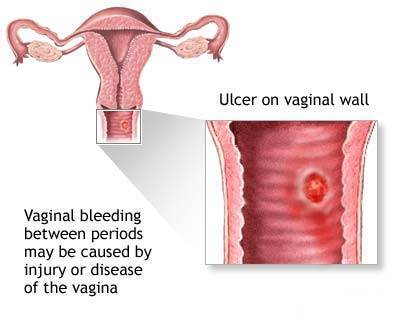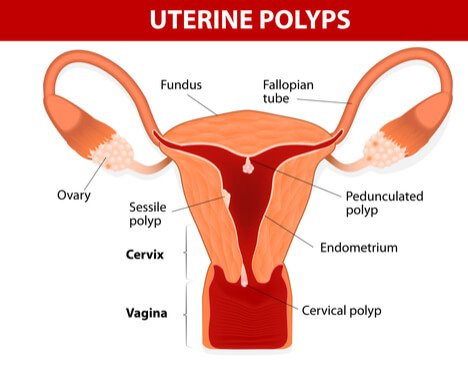The Manhattan Women’s Health & Wellness offers comprehensive Obstetrics & Gynecology care in NYC for women of all ages. Our OB-GYN clinic provides a full range of gynecologic services, from annual check-ups and routine pap smears to abnormal uterine bleeding treatment and GYN procedures. Our state-of-the-art facilities in Midtown and on the Upper East Side have the latest OBGYN equipment.
Abnormal Uterine Bleeding
 Abnormal uterine bleeding is an increased or decreased vaginal bleeding compared to your regular periods, after menopause, or during pregnancy. Specifically, you shouldn’t be bleeding after period ends or spotting between periods, after sex, or after your cycles have ceased due to menopause.
Abnormal uterine bleeding is an increased or decreased vaginal bleeding compared to your regular periods, after menopause, or during pregnancy. Specifically, you shouldn’t be bleeding after period ends or spotting between periods, after sex, or after your cycles have ceased due to menopause.
It’s also abnormal to experience prolonged menstrual bleeding or bleeding more heavily than usual during your regular menstrual cycle. Heavy uterine bleeding (HUB) can often lead to low blood counts requiring blood transfusions or iron infusions. You should contact your gynecologist for an appointment in any of these cases.
A thorough consultation and examination should be performed by our local physician, who leads a team of the best-rated gynecologists in NYC.
Any amount of bleeding after menopause is considered abnormal and needs to be evaluated by your gynecologist
A Normal Menstrual Cycle, Defined
A menstrual cycle is usually 28 days, plus or minus a few days, on average. However, your Midtown Manhattan gynecologist may tell you that as long as the number of days in your cycle is consistent, then that may still be normal. Additionally, if your periods are typically heavy or usually last for ten days rather than five — again, that may be normal for you.
What to notice are any changes in your cycle, especially a disruption to your usually consistent process. If the number of days in your cycle changes each time — for example, one cycle is 32 days, then the next cycle is 28 — that may be abnormal, and you should contact a Midtown gynecologist.
The specialists consider these types of abnormalities normal only when:
- You’re in the early years of your cycle, around ages nine to 16, as your body adjusts and finds its rhythm.
- You’re over the age of 50, and your cycle has become inconsistent. You’re more than likely experiencing perimenopausal bleeding as your body prepares for menopause.
What Causes Abnormal Uterine Bleeding?
 Abnormal uterine bleeding should always be evaluated with a thorough consultation and examination by a gynecologist for an accurate diagnosis and treatment plan as it may be a symptom or sign of a severe illness or condition. If the abnormal uterine bleeding you’re experiencing isn’t due to being young or perimenopausal, there may be many factors to consider before your OBGYN NYC can reach a diagnosis.
Abnormal uterine bleeding should always be evaluated with a thorough consultation and examination by a gynecologist for an accurate diagnosis and treatment plan as it may be a symptom or sign of a severe illness or condition. If the abnormal uterine bleeding you’re experiencing isn’t due to being young or perimenopausal, there may be many factors to consider before your OBGYN NYC can reach a diagnosis.
Some of the things your gynecologist will check immediately include:
- If there is a physical reason for the changes, such as:
- An abnormal uterus
- A forgotten tampon
- A malfunctioning IUD
- A medication you may be taking, such as tamoxifen for cancer
- If you’ve had intercourse recently
- Hormonal changes:
- If you stopped taking or changed your birth control method
- Perhaps you’re suffering from hyperthyroidism or hypothyroidism
- You have a medical condition such as polycystic ovary syndrome
- If you are pregnant, it may relate to your pregnancy, such as:
- The stage of your pregnancy
- If your pregnancy is ectopic
- If you’re experiencing fluctuating hormone levels due to the pregnancy
- Checking for infections, such as:
- Chlamydia
- Cervicitis
- Gonorrhea
- Vaginitis
- Pelvic Inflammatory disease, or PID
- If there’s a medical condition that’s causing the bleeding, such as:
- Celiac’s Disease
- A kidney or liver disease
- Thrombocytopenia
- A blood clotting disorder of any kind
- Whether you’re experiencing the growth of non-cancerous tissues, such as:
- Uterine fibroids
- Polyps of the reproductive system, such as cervical, endometrial or uterine polyps
- Adenomyosis
- If you had surgery recently on any part of your reproductive system
- Whether you experienced any trauma to your vagina or cervix, such as blunt trauma or sexual abuse.
Shortening the List of Causes
Your OBGYN starts with a physical exam to rule out specific diagnoses such as trauma or a forgotten tampon, which should be immediately apparent. Your gynecologist will question you about your menstrual cycle, sexual habits, personal history, and family history to determine a baseline of what’s normal for your body.
After determining your baseline bleeding profile, your doctor may order some of the following examinations:
- Blood tests, which are common, routine, and relatively painless. A blood test allows the gynecologist to check your blood count and hormone levels and rule out certain blood diseases.
- Sonohysterography,a test that involves making images of your uterus using sonogram technology and the aid of a tube that pushes sterile saline, a liquid, into your uterus to aid in the clarity of the images. This test allows the gynecologist to see any polyps or masses in your uterus. Regarding this test:
- There is little to no discomfort with this test, although you may experience mild, period-like cramping.
- The best time to schedule this test is seven to 10 days after your period ends. You should not be on your period or pregnant during this test.
- You may resume normal activities after the test with the recommendation that you wear a pad, as the fluids used in the test may seep out of your vagina throughout the day. Some of the discharge may look a little bloody, but that’s normal and no cause for alarm.
- Ultrasound, a test that uses sound waves to create a picture of your reproductive organs. It is a safe, non-invasive diagnostic test. Your gynecologist may have special instructions for you, but generally, there is no prep for this test.
- Magnetic resonance imaging (MRI), a common diagnostic tool that uses powerful magnets to create an image of your internal reproductive organs. While non-invasive and painless, this test can be very loud and needs you to lie down inside a large tube. Patients with issues of claustrophobia may feel discomfort.
- Endometrial biopsy, is the removal of a tiny tissue sample from your endometrium — the lining of the uterus — using a catheter and a suction device. Your doctor sends the sample to a lab for analysis. Like the sonohysterography test, this procedure may cause some cramping and discharge with small amounts of bleeding after the test. You may find that you have bleeding and cramping for several days.
- Hysteroscopy is a procedure performed while you comfortably sleep by placing a tiny camera through the vagina and into the uterus to see potential issues and correct them simultaneously. The procedure usually takes less than 10 minutes for most problems and is generally painless on awakening. You go home shortly after the treatment and can generally return to your regular activities the following day.
Diagnosis and Treatment
Your gynecologist can recommend treatment after establishing a diagnosis via one of the above methods. Treatment options vary as widely as the many possible diagnoses, but generally, uterine bleeding requires either medical treatment or surgery to get the bleeding to stop. Your doctor will tailor the treatment to you based on the following:
- Your age
- Whether you want to be able to get pregnant in the future
- The cause of the bleeding in the first place
If you are experiencing any bleeding outside your body’s normal behavior, see your gynecologist immediately so that they can establish a diagnosis and begin treatment to stop the loss of blood. Abnormal uterine bleeding should always be evaluated with a thorough consultation and examination by a physician for an accurate diagnosis and treatment plan. It may be a symptom or sign of a severe illness or condition.
Have questions about Abnormal Uterine Bleeding? If you would like to schedule an appointment with the best OB-GYN in NYC, please contact our Midtown, Manhattan, or the Upper East Side office.
New York City Locations: Manhattan Women's Health & Wellness (Upper East Side) 983 Park Ave, Ste 1D17New York, NY 10028
(212) 389-1904 Manhattan Women's Health & Wellness (Midtown) 56 W 45th St, Ste 815
New York, NY 10010
(212) 677-7654 Manhattan Women's Health & Wellness (Union Square) 55 W 17th St, Ste 104
New York, NY 10011
(212) 378-9985


